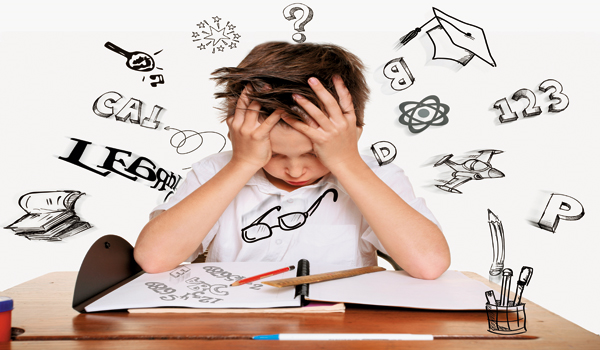The struggles of living with a learning disability. Learning disabilities come in many different forms, and can be more difficult to identify than other disabilities. However, it does not lessen the impact on a person’s life in any way. Living with a learning disability is going to require some serious effort on your end and can take time to overcome. The good news is that with some guidance and support, people with learning disabilities have been able to live happy, successful lives!
Contents
- 1 What Are Learning Disabilities?
- 2 Teens With Learning Disabilities
- 3 Symptoms Of Learning Disabilities
- 4 Types of Learning Disabilities
- 5 Causes Of Learning Disabilities
- 6 Effects Of Learning Disabilities On Children
- 7 Prevention Of Learning Disabilities
- 8 Treatments For Learning Disabilities
- 9 Therapy for Learning Disabilities
- 10 Ways To Help Someone With A Learning Disability
- 11 Tips For Living With Learning Disabilities
- 12 Conclusion
- 13 A Word From Therapy Mantra
What Are Learning Disabilities?
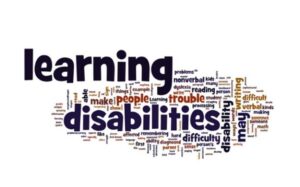
Learning disabilities are when a person has trouble learning, reading, and speaking. It can happen to people of any age. Learning disabilities are not the same as learning problems. For example, someone might have trouble reading. This is called a learning disability or a reading disorder. It’s different from having trouble understanding English, which is called a language disorder.
It is important to remember that having a learning disability does not mean that you cannot have a happy life! It just means that you are going to have to work harder at certain things. But this does not make you dumb or stupid! You are still smart, even if it takes more effort for you to learn something.
Teens With Learning Disabilities
Teens with learning disabilities often face unique challenges. They may feel embarrassed or ashamed of their struggles, and feel like they are the only ones who are struggling. This can lead to feelings of isolation and loneliness. It is important for teens with LDs to find a support group or community where they can share their experiences and find encouragement.
There are many helpful resources available for teens with learning disabilities. The internet is a great place to start, as there are many websites dedicated to helping people with LDs. There are also many books written specifically about LDs, which can be helpful in understanding the condition and finding strategies for dealing with it.
Symptoms Of Learning Disabilities
The most common symptoms of a learning disability are as follows:
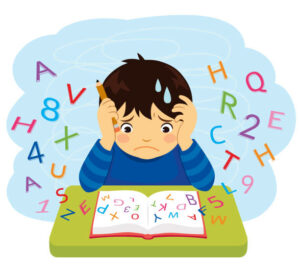
- Difficulty with reading
- Difficulty with writing
- Problem with math
- Difficulty with oral language
- Difficulty with coordination and motor skills
If you are experiencing any of these difficulties, it is important to speak to a doctor or specialist about getting tested for a learning disability.
If you have a learning disability, the symptoms will include a lot of frustration and troubles with school. You may feel like you are dumb or stupid because it may seem to you everyone else knows what they are doing while you don’t do so well, but there is nothing wrong with your brain. That is just how your individualism works.
Types of Learning Disabilities
There are many different types of learning disabilities, which can make them hard to identify. However, there are some common signs and symptoms of learning disabilities that parents and teachers may notice.
Writing disorders
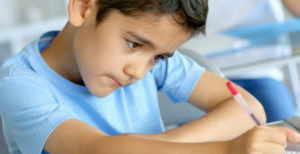
This type of LD is about having trouble with writing or understanding how to write letters and words. People who have a writing disorder might mix up numbers and letters, misspell words, reverse the order of letters in a word, or forget how to write letters and numbers.
Signs
- Forgets how to spell simple words
- Has trouble writing letters or numbers the right way
- Misspells common words, like “was” and “saw”
- Does not seem to improve in their studies over time
Reading disorders
This type of LD is about having trouble reading. People who have a reading disorder might mix up words that sound the same (like “bat” and “cat”), forget what a word means, read slowly and make mistakes when they sound out words, or skip over parts of a word.
Signs:
- Makes a lot of reading mistakes even after being taught how to read
- Forgets what words mean or uses the wrong word in a sentence
- Trouble sounding out words when they are learning to read
- Slowly reads and makes mistakes when sounding out words
Math disorders
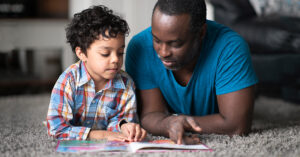
This type of LD is about having trouble with math, which can include reading numbers and doing basic problems. People who have a math disorder might mix up numbers, count on their fingers or do their work in a different order, or have trouble telling how much bigger one number is than another.
Signs:
- Mixes up numbers or uses the wrong number
- Trouble understanding how to do math problems
- Counts on fingers when doing simple addition and subtraction
- Cannot tell which number is bigger than another
Spelling disorders
This type of LD is about having trouble spelling words correctly. People who have a spelling disorder might get letters backwards, forget how to spell a word, or find it hard to use the right grammar when writing sentences.
Signs:
- Writes letters or words backwards
- Forgets how to spell common words, like “said” and “was”
- Makes a lot of mistakes when writing sentences
- Does not seem to improve in their spelling over time
Attention disorders
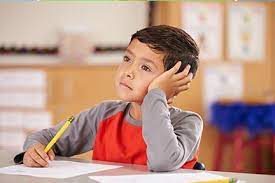
This type of LD is about paying attention and being able to focus on tasks. People who have an attention disorder might have trouble staying focused on a task, or might forget what they are doing when they are distracted.
Signs:
- Trouble concentrating on a task
- Forgets things easily
- Makes careless mistakes even when they are working very hard
Language disorders
This type of LD is about having trouble understanding and using language. People who have a language disorder might mix up words that sound the same (like “bat” and “cat”), forget what a word means, or have trouble getting their point across or understanding other people.
Signs:
- Makes a lot of reading mistakes even after being taught how to read
- Forgets what words mean or uses the wrong word in a sentence
- Trouble sounding out words when they are learning to read
- Slowly reads and makes mistakes when sounding out words.
Any person who shows one or more of these signs might have a learning disability. It is important to learn more about the signs so parents and teachers understand what might be happening with their child or student. They can then talk to a doctor or therapist for help.
Learning disorder not otherwise specified (LD-NOS)
This type of LD is diagnosed when a child shows some signs of having trouble in school, but does not meet the criteria for another learning disability.
Signs:
- Makes enough trouble in school so that the child might need help
- Doesn’t meet all of the criteria for another LD
- An evaluation by a doctor or therapist shows there is a learning problem
Causes Of Learning Disabilities
There are many different causes of learning disabilities, but the most common ones are as follows:
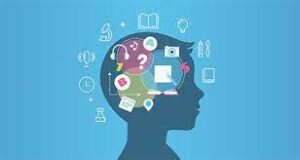
- Genetic factors
- Environmental factors
- Neurological factors
- Social and emotional factors
If you are concerned that you or your child may have a learning disability, it is important to speak to a doctor or specialist. They will be able to test for a learning disability and help you get the support you need.
Effects Of Learning Disabilities On Children
People with learning disabilities find it harder to learn than other people. This can be a problem when they are trying to learn in school. Sometimes it is hard for people with learning disabilities to read, write, or speak. But this does not mean that they have a hard time having happy and successful life! There are many things that you can do to help someone with a learning disability. You can get them support from teachers, doctors, and other people who know how to help.
A learning disability is when you have to work harder than other people to do the same things. This can make you feel bad, but it does not mean that your brain is not working. There are many reasons for why this happens and it will take a doctor or specialist to figure out what has happened and help you get the support that you need.
Prevention Of Learning Disabilities

There is no way to prevent learning disabilities; however, if you know the risk factors (see causes section), you can do things such as wear seatbelts and get regular checkups to decrease your chances of having a learning disability.
Treatments For Learning Disabilities
There are currently no treatments for learning disabilities, but there are ways to manage them. These include therapies and medications.
If you have a learning disability, the best way to get support is by visiting your doctor or specialist who can diagnose you with one and create a plan for how to live with it.
Therapy for Learning Disabilities

There are many different types of therapy for learning disabilities, but the most common ones are as follows:
- Occupational therapy: helps children develop skills for daily living, including self-care
- Speech therapy: helps children with language and speech issues, including emotional expression
- Physical therapy: helps children with fine motor skills to improve handwriting
- Behavioral treatment: focuses on helping children change behaviors that hinder
- Speech therapy: helps children with speaking and reading
- Tutoring: helps with academics
- Behavioral treatments: focuses on changing
If you are looking for help managing your learning disability, it is important to speak to a doctor or specialist who can recommend the right type of therapy for you.
Ways To Help Someone With A Learning Disability

There are many ways to help someone with a learning disability, and the most important thing is to be patient and understanding. Some things you can do to help include:
Helping them stay organized– This can be done by creating a calendar system with them. They may do better if they create their own to-do list and put it on the refrigerator. This way, they can see what is coming up next; however, you should still help them stay organized to make sure none of the upcoming events get missed. Some other ways to help someone with a learning disability include:
- Reminding them of tasks they have to do or things that have been planned
- Supporting their efforts and encouraging them when they try new things
- Being positive no matter what happens, even if they don’t do as well as you would like them too
- Keeping communication lines open so that both parties know what is going on and how the other person feels about it
- Helping them get to appointments or meetings on time
Helping someone with a learning disability can be difficult, but if you are patient and understanding, they will probably start to get better at managing their disorder. It may take some time, but eventually they will be able to do things on their own.
Tips For Living With Learning Disabilities

If you or someone you know has a learning disability, it is important to know how to live with it. There are many things that can help make life easier, including the following tips:
- Stay organized: This will help reduce stress and make sure important tasks don’t get missed.
- Use a calendar system: This can be helpful for keeping track of events and appointments.
- Get help when needed: Don’t be afraid to ask for help when you need it. There are many people who are willing to assist.
- Keep communication lines open: This will help ensure that both parties are aware of what is going on and how the other person is feeling about it.
- Be positive: No matter what happens, always stay positive.
- Keep trying: No matter what you do, never ever give up.
If you have a learning disability, it can be difficult to live with it. However, there are many things that will help make life easier for both yourself and those around you.
Conclusion
There are many different types of learning disabilities, and they can affect people in different ways. Some students with learning disabilities may need more time to complete their work, while others may require specialized accommodations in order to learn in a traditional school setting. Still others may benefit from homeschooling or other forms of alternative education. No two students with learning disabilities are exactly alike, so it is important that educators and parents work together to find the best educational path for each individual child. By understanding the different types of learning disabilities and the challenges they present, we can help all children reach their full potential academically and socially.
A Word From Therapy Mantra
Your mental health — Your psychological, emotional, and social well-being — has an impact on every aspect of your life. Positive mental health essentially allows you to effectively deal with life’s everyday challenges.
At Therapy Mantra, we have a team of therapists who provide affordable online therapy to assist you with issues such as depression, anxiety, stress, workplace Issues, addiction, relationship, OCD, LGBTQ, and PTSD. You can book a free therapy or download our free Android or iOS app.
